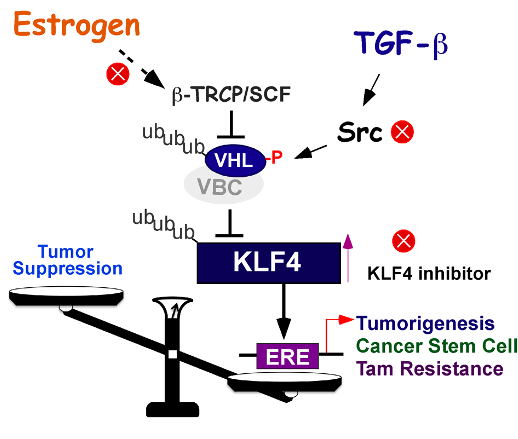Crosstalk between estrogen receptor and TGF-b signaling in breast tumor initiation, progression and invasion

Defective regulation of estrogen receptor (ER) and transforming growth factor beta (TGF-β) signaling pathways can predispose breast cells towards carcinogenesis. Our recent findings have revealed a previously unknown mechanism that centers on the interplay between KLF4, an oncogenic transcriptional factor, and VHL/VBC (E3 ligase) as well as between VHL and b-TRCP/SCF (E3 ligase) in cell cycle control and proliferation. Their functional interaction is critical in orchestrating the crosstalk between ER and TGF-β signaling pathways, which in turn determines whether breast cells retain their homeostasis or are transformed to initiate oncogenic growth. Our observations have provided insight into the pathological mystery previously observed by us and others that over 70% of human mammary cancers exhibited cellular accumulation of KLF4 and decreased levels of VHL protein and that disruption in b-TRCP function in mice could results in tumor initiation and progression. We are currently studying the molecular basis of the interplay between KLF4 and VHL/VBC as well as VHL and b-TRCP/SCF in their regulation of ER and TGF-β signal transduction and determining how impaired KLF4 proteolytic regulation due to dysregulated VHL/VBC or b-TRCP/SCF


